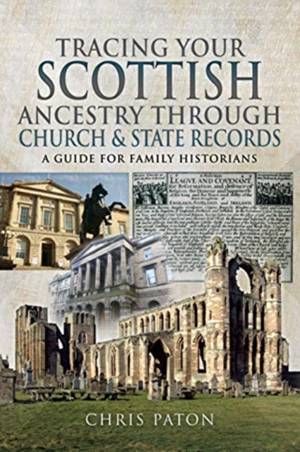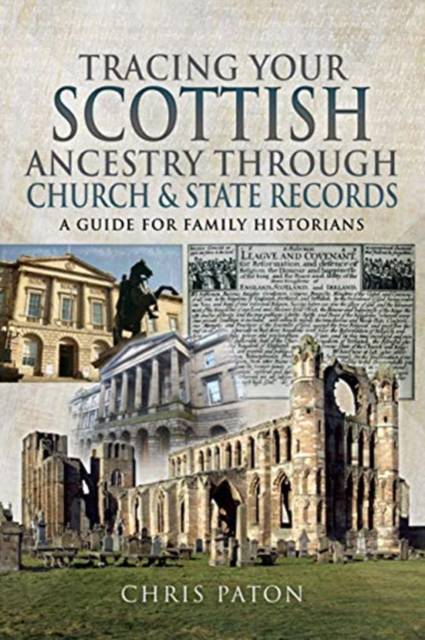
Bedankt voor het vertrouwen het afgelopen jaar! Om jou te bedanken bieden we GRATIS verzending (in België) aan op alles gedurende de hele maand januari.
- Afhalen na 1 uur in een winkel met voorraad
- In januari gratis thuislevering in België
- Ruim aanbod met 7 miljoen producten
Bedankt voor het vertrouwen het afgelopen jaar! Om jou te bedanken bieden we GRATIS verzending (in België) aan op alles gedurende de hele maand januari.
- Afhalen na 1 uur in een winkel met voorraad
- In januari gratis thuislevering in België
- Ruim aanbod met 7 miljoen producten
Zoeken
Tracing Your Scottish Ancestry Through Church and State Records
A Guide for Family Historians
Chris Paton
€ 20,95
+ 41 punten
Omschrijving
Despite its Union with England and Wales in 1707, Scotland remained virtually independent from its partners in many ways, retaining its own legal system, its own state church, and its own education system.
In Tracing Scottish Ancestry Through Church and State Records, genealogist Chris Paton examines the most common records used by family historians in Scotland, ranging from the vital records kept by the state and the various churches, the decennial censuses, tax records, registers of land ownership and inheritance, and records of law and order.
Through precepts of clare constat and ultimus haeres records, feudalism and udal tenure, to irregular marriages, penny weddings and records of sequestration, Chris Paton expertly explores the unique concepts and language within many Scottish records that are simply not found elsewhere within the British Isles. He details their purpose and the information recorded, the legal basis by which they were created, and where to find them both online and within Scotland's many archives and institutions.
In Tracing Scottish Ancestry Through Church and State Records, genealogist Chris Paton examines the most common records used by family historians in Scotland, ranging from the vital records kept by the state and the various churches, the decennial censuses, tax records, registers of land ownership and inheritance, and records of law and order.
Through precepts of clare constat and ultimus haeres records, feudalism and udal tenure, to irregular marriages, penny weddings and records of sequestration, Chris Paton expertly explores the unique concepts and language within many Scottish records that are simply not found elsewhere within the British Isles. He details their purpose and the information recorded, the legal basis by which they were created, and where to find them both online and within Scotland's many archives and institutions.
Specificaties
Betrokkenen
- Auteur(s):
- Uitgeverij:
Inhoud
- Aantal bladzijden:
- 176
- Taal:
- Engels
- Reeks:
Eigenschappen
- Productcode (EAN):
- 9781526768421
- Verschijningsdatum:
- 27/12/2019
- Uitvoering:
- Paperback
- Formaat:
- Trade paperback (VS)
- Afmetingen:
- 155 mm x 231 mm
- Gewicht:
- 385 g

Alleen bij Standaard Boekhandel
+ 41 punten op je klantenkaart van Standaard Boekhandel
Beoordelingen
We publiceren alleen reviews die voldoen aan de voorwaarden voor reviews. Bekijk onze voorwaarden voor reviews.









